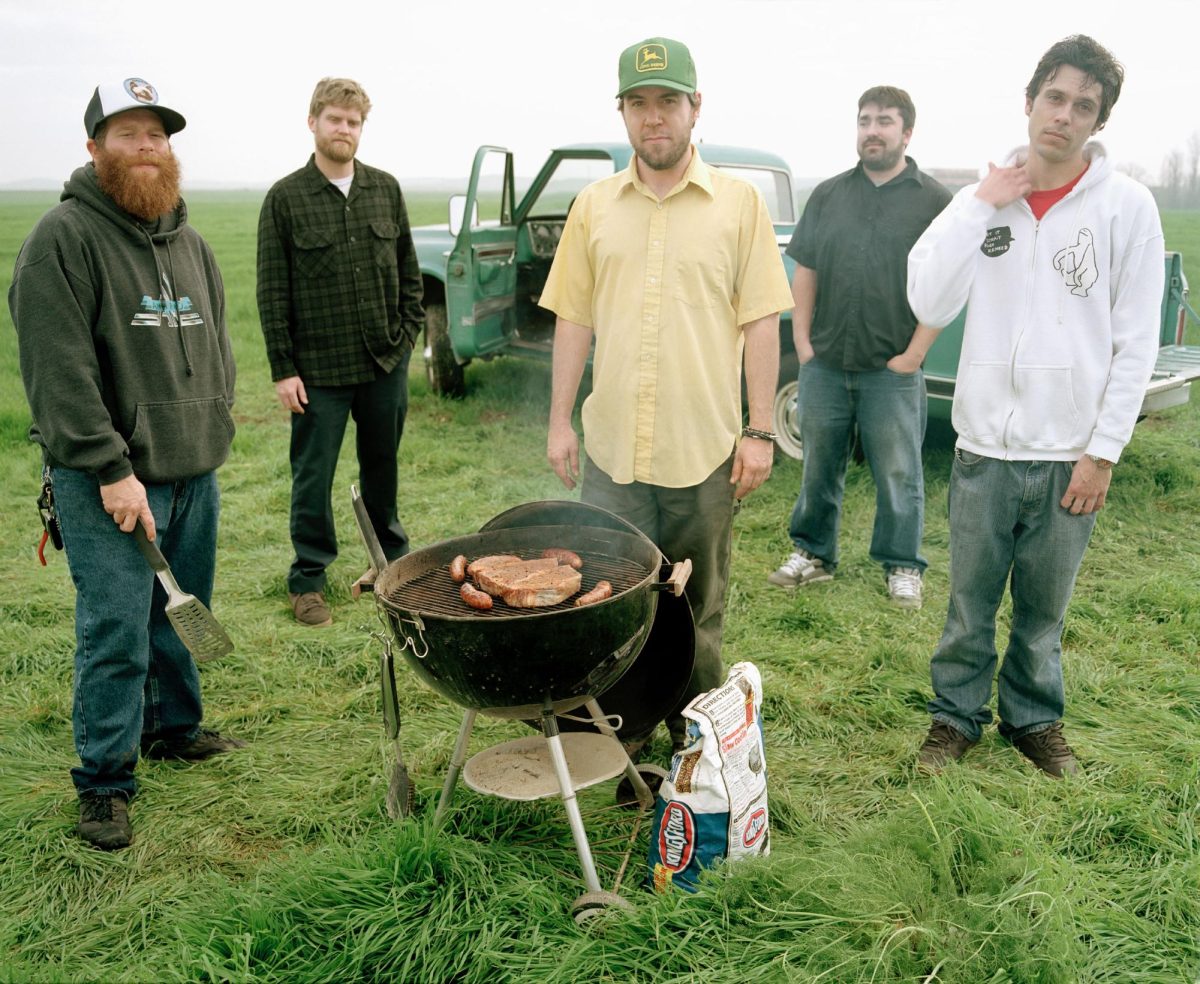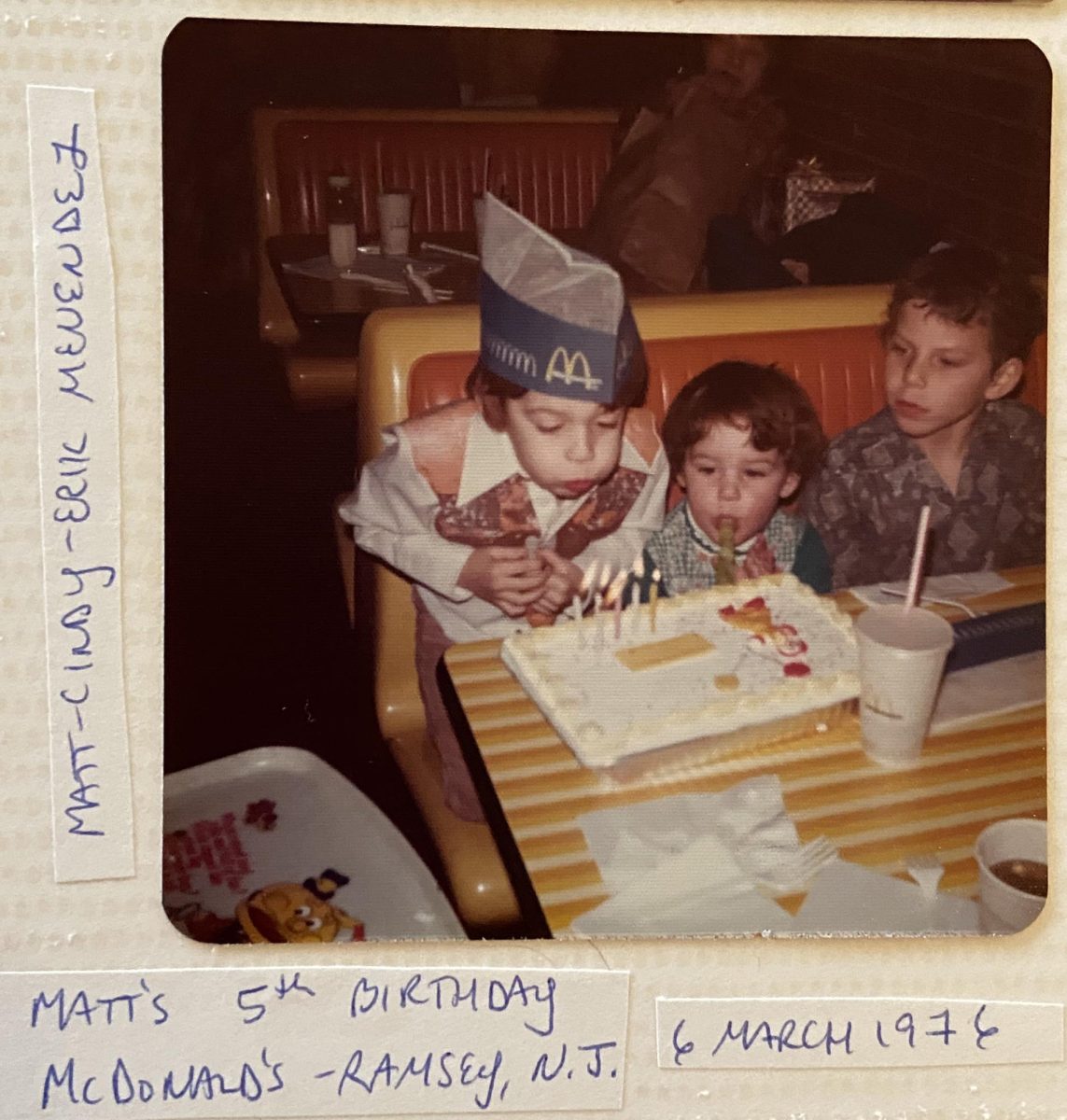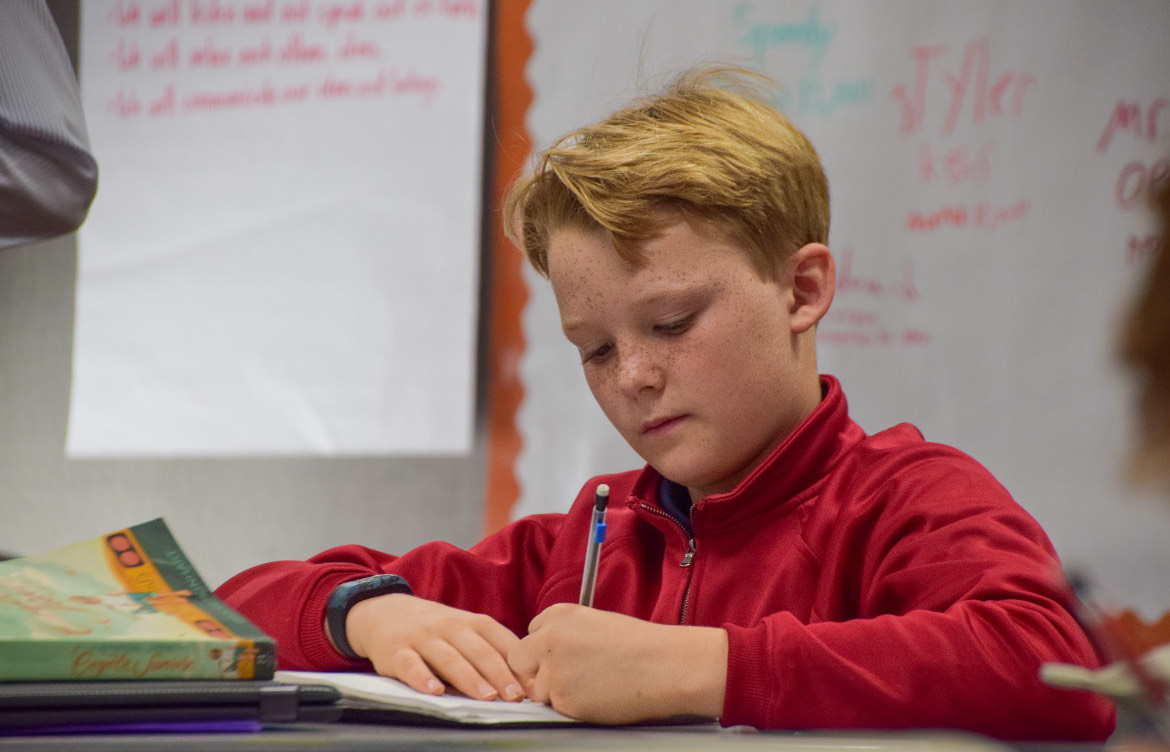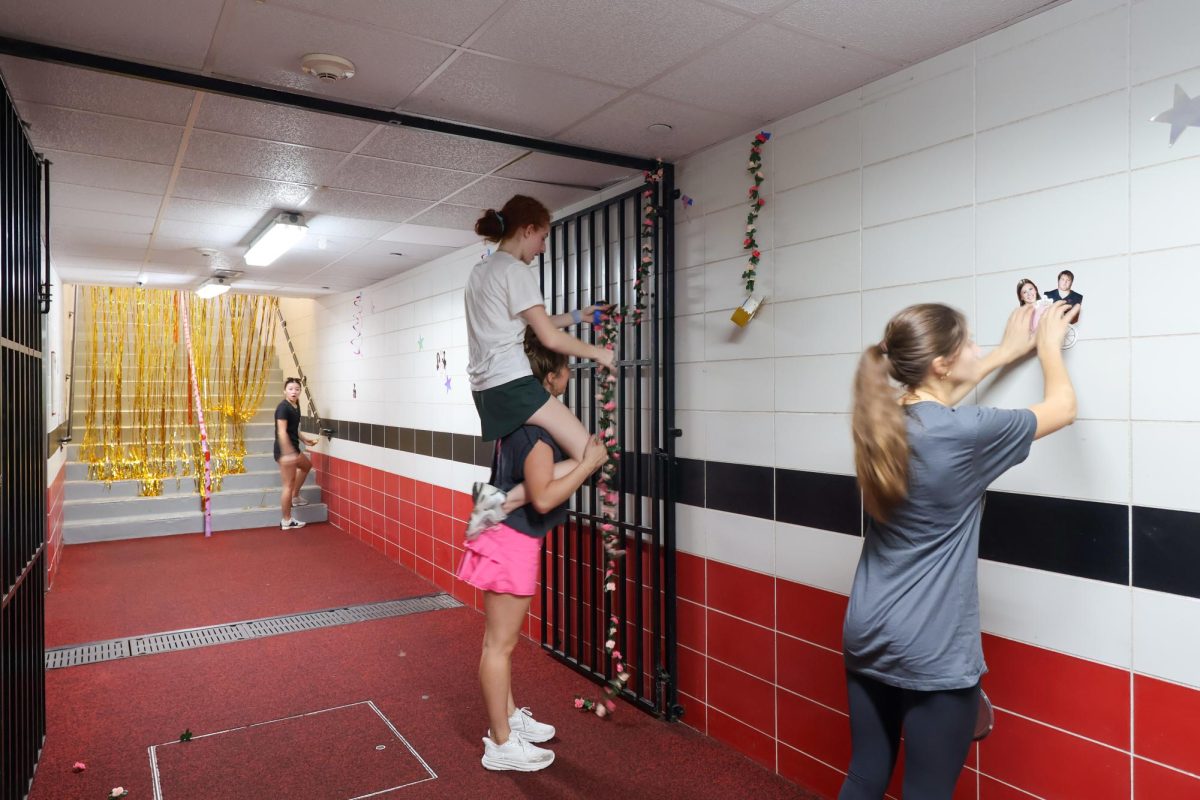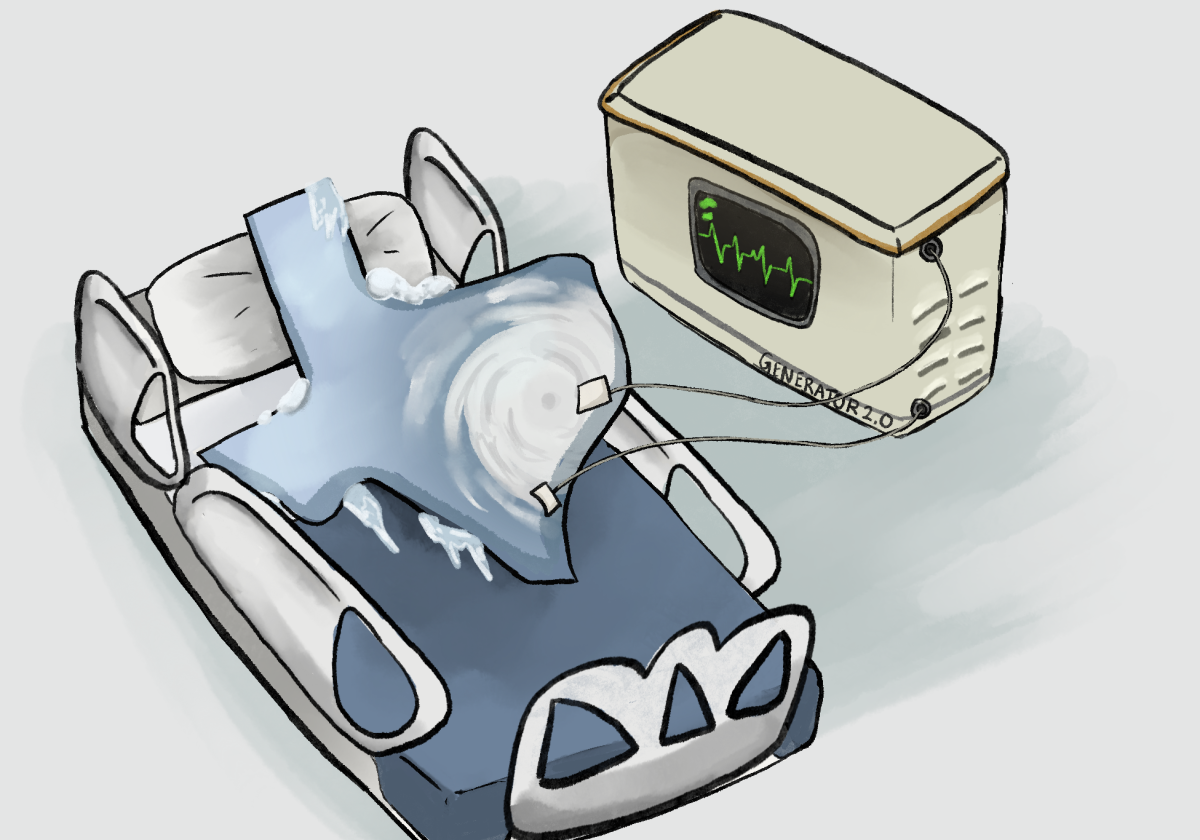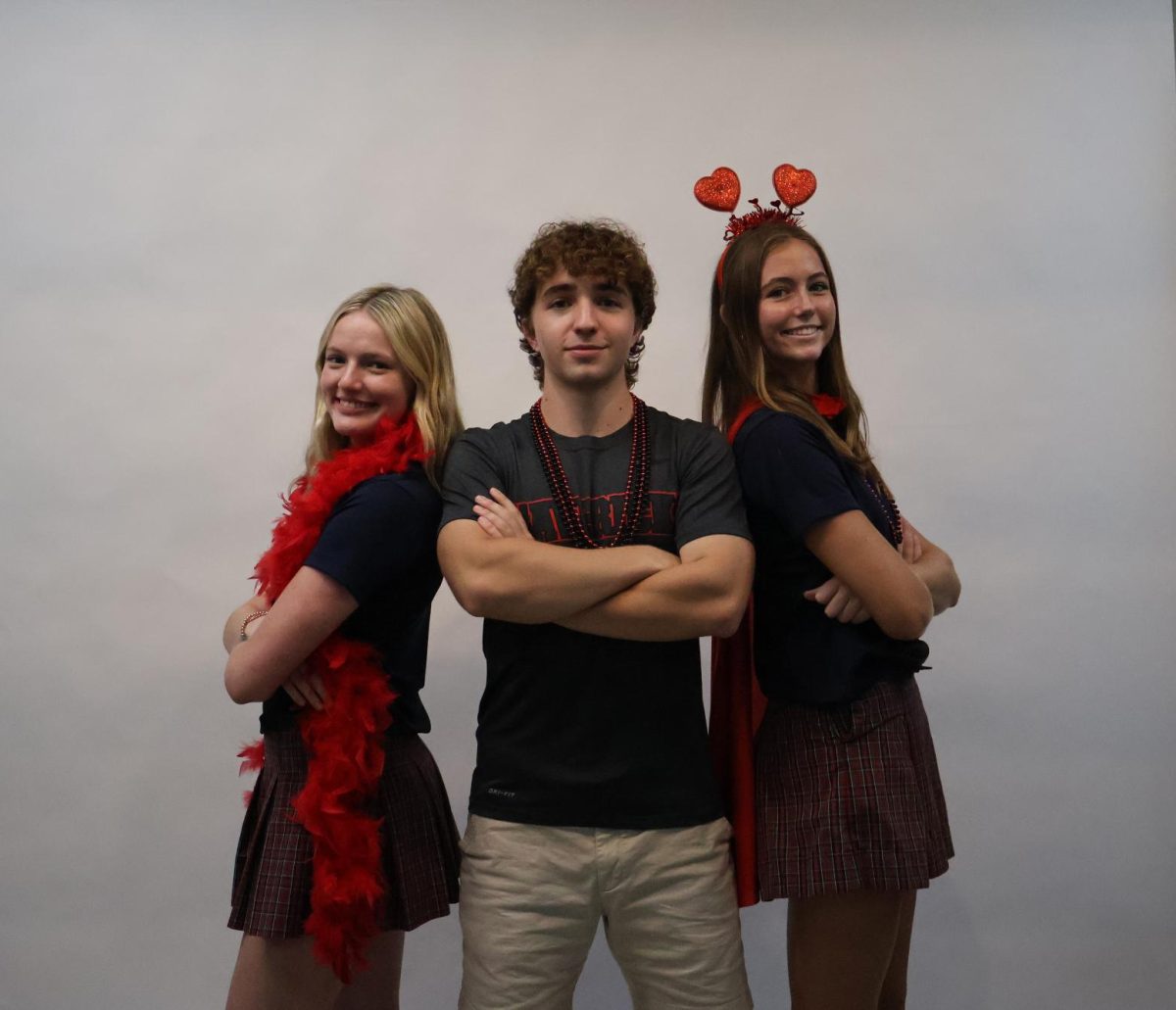
Grandaddy frontman Jason Lytle grew up in a full house in Modesto, California. His big family was loud. But they also listened. His older brothers and sisters had an extensive record collection, which Lytle treated with reverence.
“In order to get some sort of peace of mind, I used to sit in the corner and draw,” Lytle said in a virtual interview with The Review. “And then I’d put headphones on.”
The love of music that began at age 5 blossomed into an obsession with sound engineering when he started piecing together original songs on a cassette recorder. Grandaddy’s signature production style is something Lytle, now 54, has worked “very hard at”—foggy vocals and home-studio reverb make the deceivingly twinkly songs atmospheric. The stories they tell are representative, Lytle says, of the kind of people he grew up with: “bleak.”
Sumday: Excess Baggage is a collection of B-sides recorded around the same time as Grandaddy’s critically-acclaimed 2003 album, Sumday, the 20th anniversary version of which was rated “Best New Reissue”’ by Pitchfork. Excess Baggage, released August 25, is a series of narratives of the unfulfilled and uninspired. “Derek Spears,” the second song on the record, showcases a washup who works at Pizza Shack: “he said he made 90K a year before he hurt his back.” Lytle said that sort of story is “pretty typical” of people he’s encountered.
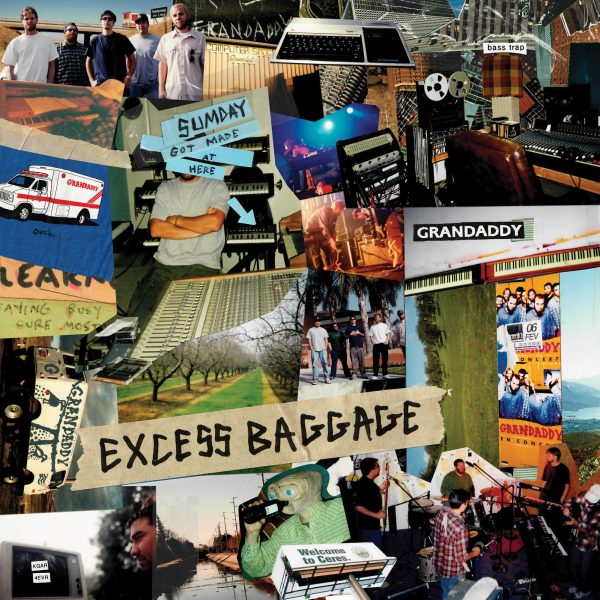
“I’’ve known so many people like Derek Spears,” Lytle said. “When I’m able to tap into a song or a character, I’m usually combining myself and a lot of other people that I’ve known.”
Lytle, also an avid skater, was a sponsored amateur by 19. He stopped skating competitively in 1988 after an ACL injury and returned to music. The first song on Excess Baggage is an instrumental called “My Little Skateboarding Problem.”
“I tapped back into that young version of myself that was interested in, not only listening to the music, but trying to figure out how these people made this music,” Lytle said. “So I just kind of took myself to school.”
Grandaddy was formed in 1992. Along with drummer Aaron Burtch and bassist Kevin Garcia, Lytle sang and played guitar. Keyboardist Tim Dryden and lead guitarist Jim Fairchild joined in 1995. Over the next decade, the band released four studio albums with Big Cat Records. They split in 2006.
“I wasn’t thrilled with the direction that my personal life was headed,” Lytle said. “There were a lot of changes that needed to take place for me to have my own personal reset.”
Lytle moved to Portland, Oregon, and took a break from music. Touring had become exhausting, and he wanted to stop while he was ahead—he didn’t want Grandaddy to become “pathetic.” Lytle spent the next five years working on two solo albums but made sure to take time for himself; he spends as much of his day outside as possible.
The lovingly ramshackle quality of Excess Baggage is perhaps due to how Lytle felt writing it. Grandaddy was touring constantly, and what little free time he had was occupied by recording the singles and B-sides Big Cat demanded.
“Anytime I would come home, all my downtime was eaten up by recording more and more stuff,” Lytle said.
The album is an honest exhibition of drear, but with a wink. Lytle’s observations paint a picture as detailed and unfortunate as a police sketch. Though excruciatingly specific, his songs remain relatable; not many people have found themselves “Running Cable at Shiva’s,” but everyone knows what it’s like to be so sad and afraid you feel sick.
After an 11-year hiatus, interrupted briefly by a 2012 reunion tour, Grandaddy got back together. Lytle was wary that coming back to Grandaddy would mean more touring, but he was excited to make a new record. He was ready. Ironically, themes of communal alienation present in the band’s early work intensify on tracks like “The Boat Is in the Barn” and “I Don’t Wanna Live Here Anymore.” Lytle said they “turned out really well.” Last Place was released in March 2017.
On May 2, bassist Kevin Garcia passed away after suffering a stroke.
“It was absolutely devastating,” Lytle said. “We had no intention of playing shows after that.”
Despite their untimely end, Lytle recalls his days with Grandaddy fondly; he likens the “unbelievable feeling” of playing as a band to the way he feels skating and trail running. To him, it’s all connected, and doing what he loves puts him in an intensively appreciative hypnosis.
“Some people don’t care how a car works, some people don’t care why plants grow, and I think it’s getting worse,” Lytle said. “As time goes on, people are becoming more detached from the idea that somebody built everything in this world.”
Lytle is deeply interested in the mechanics of music. He could spend “eight or ten or twelve” hours at a time listening to and making it. His advice to aspiring musicians: “listen to lots and lots and lots of music—find your passion.”
Before we logged off, he added: “The thing is, if it’s your passion, that’s not work.”



